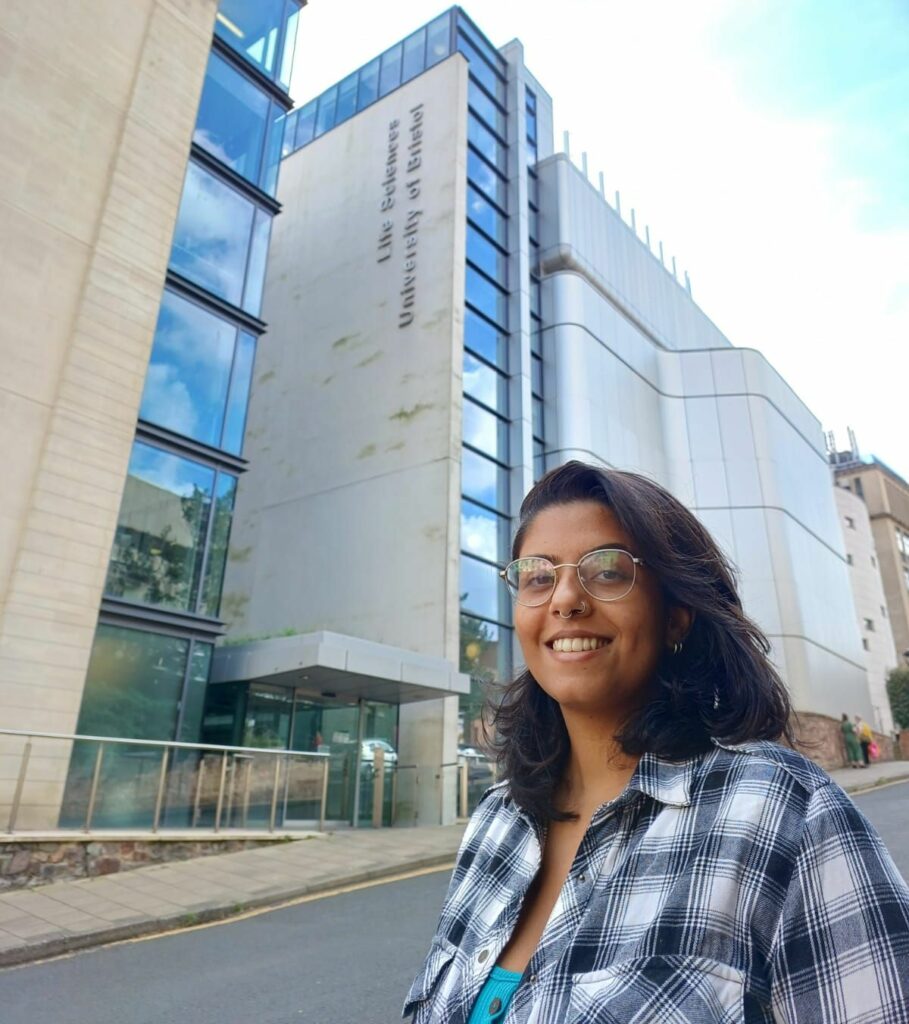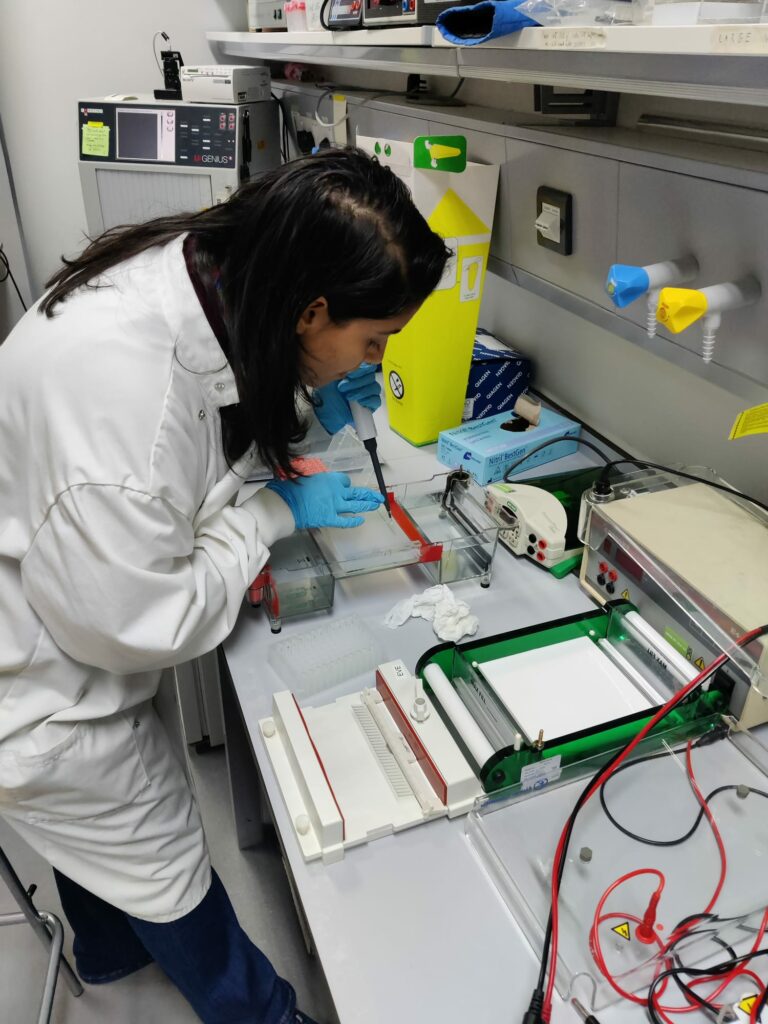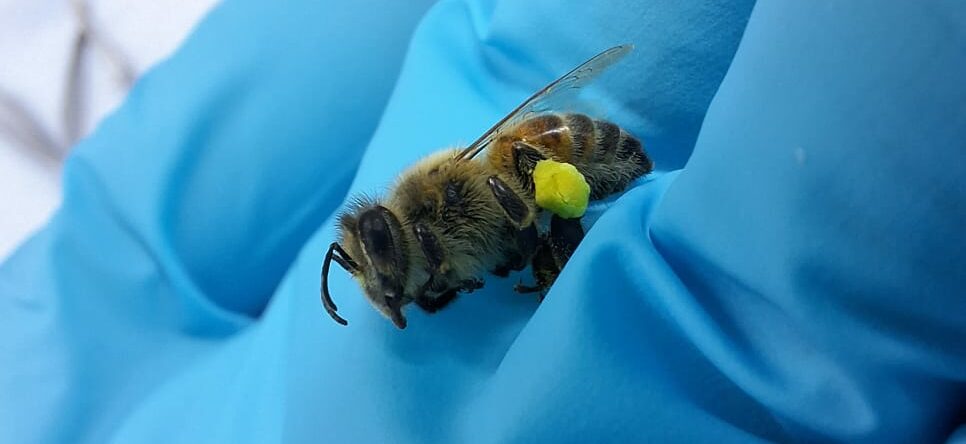Ana Paula Cipriano shares her experience of moving to the United Kingdom to start her PhD at the University of Bristol. The study aims to understand the drifting behaviour in honey bees and stingless bees, exploring its impact on colony health by doing fieldwork in the United Kingdom and Brazil, in collaboration with Meli.
Author: Ana Paula Cipriano
Leia em português
Student: Ana Paula Cipriano
Advisors: Christoph Grueter and Emily Bell
School of Biological Sciences, Faculty of Life Sciences, University of Bristol.
Every big change involves a lot of planning, action, and, of course, a dose of courage. I wanted to share how my experience of moving abroad to start my PhD in the United Kingdom at the University of Bristol has changed my life and my routine in the last 4 months. Starting a new life in a different country is indeed challenging; the food, the weather, and the culture are very different. I was lucky enough to come to a great city and meet amazing people, which made my adaptation smoother.

My PhD is a Doctoral Training Partnership, and I have a South West Biosciences Scholarship (SWBio DTP), which is an amazing opportunity and is different compared to the regular postgraduate scheme. My first year is focused on training, so I have taught units, conferences, and rotation projects, with the main goal of obtaining the most relevant knowledge that I will need throughout my project. In general, I had training in the most relevant techniques to my project and in how to analyse the data that I will obtain during my research.
Ana in front of the Life Sciences Building, University of Bristol
In the rotation projects, I have to develop small research projects and produce an article at the end of each one. Until February, I am still working on the first rotation project, in which the objective is to identify the plant species that honey bees are visiting based on the pollen they collected. I am learning how to identify a plant species by extracting the DNA, these very small fragments that are inside the pollen grain cells, and to use this DNA to implement a technique that works like a barcode. For example, when you go to a supermarket and identify the rice by its barcode, I will use the DNA inside the pollen grains to identify the plant species they come from, and the name of the technique that allows us to do this is called DNA metabarcoding. In this technique, we collect some pollen using a trap at the nest entrance, then we extract the DNA and use specific parts of these little fragments to detect which plant the bee visited, for example, an apple or an almond tree. From March until July, I will start the second rotation project, and I will try to understand factors that affect social bee behaviour based on computer simulations, a very interesting knowledge learning that I am happy to acquire. It is super exciting to learn so many techniques that I will certainly use during the PhD project
Focusing on the PhD project itself, its general aim is to study the behaviour and health of social bees, such as honey bees and stingless bees. Bees are extremely important for our ecosystems since they visit the flowers to collect resources for their nests while pollinating and contributing to the maintenance and regeneration of plants. We are interested in understanding a specific behaviour, the drifting behaviour, which occurs when a bee is returning to its original hive but then enters the wrong nest by mistake. This behaviour can occur at a high rate, and bees entering different nests can increase the spread of disease and result in nutritional issues for the colonies. To obtain this very interesting information, we will have a lot of fieldwork, both in the United Kingdom and in Brazil, in partnership with Meli.

Ana in the lab, doing DNA extractions
Investigating the drifting behaviour of honey bees and stingless bees, therefore, will give us an important understanding of how anthropogenic factors and stressors can affect the health of these bees. The next steps in the PhD involve finishing the taught units, the 2 rotation projects, starting the main project and the fieldwork, in the second term in 2024. I am really happy with this opportunity and excited to start the research with the bees, especially in Brazil.
Your donation can have a positive impact on the world!
Subscribe to receive our Newsletter!
Find us also at Linkedin, Facebook, Twitter or Instagram
www.meli-bees.org
❤️


One Reply to “Exploring the scientific universe: the impact of drifting behavior in bee colonies health”